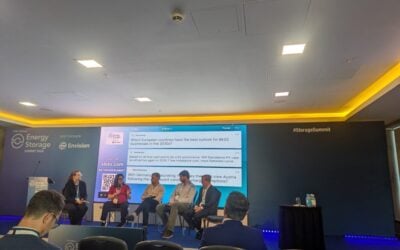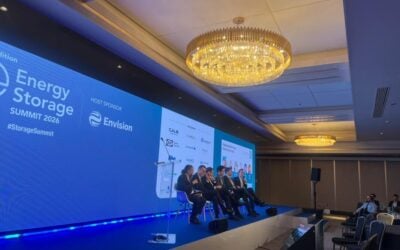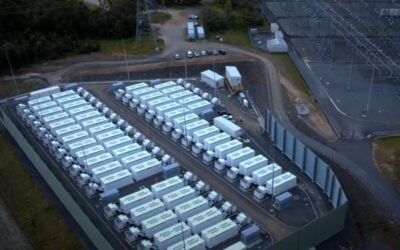
Developer Better Energy is deploying its first battery energy storage system (BESS), a 10MW/12MWh system, at one of its solar PV plants in Denmark.
The company is installing the 1.2-hour duration BESS project at its Hoby solar park on the island of Lolland, southern Denmark, which came online in August 2023.
The BESS will be online by the end of 2024. It will provide ancillary services and frequency control services to Danish transmission system operator (TSO) Energinet.
Better Energy also said the BESS presents the opportunity to store excess renewable energy at peak generation times to increase the availability of that renewable energy on the grid. However, it didn’t provide details of whether the BESS would charge directly from the solar park or just share the AC grid connection.
Try Premium for just $1
- Full premium access for the first month at only $1
- Converts to an annual rate after 30 days unless cancelled
- Cancel anytime during the trial period
Premium Benefits
- Expert industry analysis and interviews
- Digital access to PV Tech Power journal
- Exclusive event discounts
Or get the full Premium subscription right away
Or continue reading this article for free
Denmark has been relatively quiet for grid-scale energy storage projects, though an 18MWh thermal energy storage project did start commissioning late last year. Virtual power plant (VPP) companies including Nuvve and Flower are active in the country’s ancillary service market primarily through managing EV networks.
Better Energy is active in solar project development in and around its home market of Denmark with projects also in Poland, Sweden and Finland, covered extensively by our sister site PV Tech.
Copenhagen airport installs 1.2MWh BESS
In related news, a 900kW/1.2MWh BESS has been deployed at Copenhagen Airport, the operator announced last week (20 March).
It will be managed via an energy management system (EMS) from Hybrid Greentech and will be optimised with existing solar panels and EV charging at a location south of the airport’s terminals.
The Danish Technological Institute also worked on the project, which is part of the EU-funded Alight programme aimed at showcasing sustainable aiports via sustainable fuels, e-mobility energy storage and waste heat recovery.





